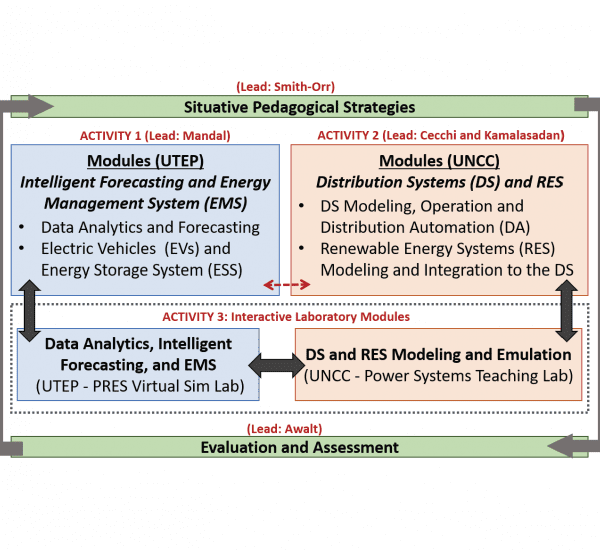Developing Power Engineering Curriculum Using Situative Pedagogy and Data Analytics

Developing Power Engineering Curriculum using Situative Pedagogy and Data Analytics
Electrical and Computer Engineering
Drs. Valentina Cecchi (Associate Professor, ECE), Sukumar Kamalasadan (Professor, ECE), and Courtney Smith-Orr (Teaching Assistant Professor, ECE) received funding from the NSF under the Improving Undergraduate STEM Education (IUSE) program. They are collaborating with researchers at the University of Texas El Paso to enhance power engineering undergraduate curriculum.
The grid of the (near-) future is envisioned as an intelligent system that can be monitored, supervised, and controlled in real-time, consisting of millions of smart devices and interconnected decision-makers. Thus, today’s power engineers require multi-disciplinary engineering knowledge to manage the modern power grid consisting of a larger amount of renewable energy resources, digital devices, information technology tools, and sensors. There is a great need for energy professionals that are knowledgeable not only in classic power systems topics, but also in areas such as renewable energy and data analytics. Therefore, a change in the educational paradigm is called for in power engineering. This project will develop an integrated research-oriented curriculum for active and situated learning with an emphasis to engage and improve students’ skill-set in the area of renewable energy (RE) integrated power distribution system analysis with data analytics, viz: Smart Energy Management Systems. This overall goal will be achieved by introducing enhanced lecture modules and an interactive hybrid emulator-simulator laboratory.